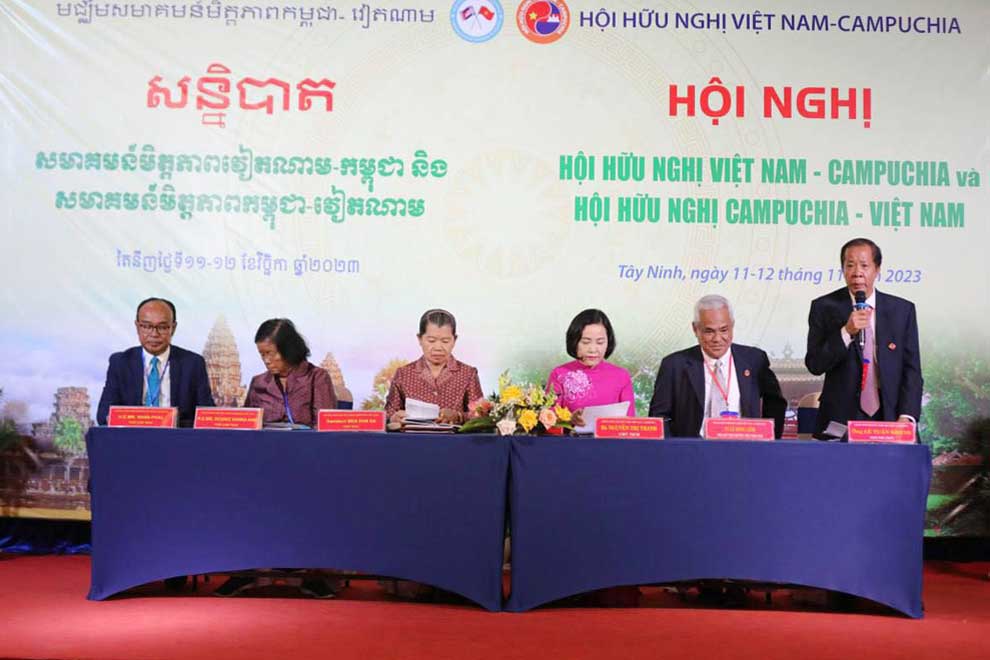
Labour minister Heng Sour (right) meets with Ambassador of the Republic of Korea Park Jung-Wook on November 16. MLVT
The Ministry of Labour and Vocational Training and South Korea’s HD Hyundai Heavy Industries Co., Ltd have established plans to cooperate on human resource development for the Kingdom’s heavy industry shipbuilding sector.
The agreement was made during a November 15 tripartite meeting between labour minister Heng Sour, Park Jung-wook, South Korean ambassador, and Kim Dong-il, deputy-general-director of HD Hyundai Heavy Industries Co Ltd.
During the meeting, all of the parties agreed to upskilling Cambodian workers in the shipbuilding industry.
Sour thanked the two South Korean sides for providing the opportunity for Cambodians to participate in a heavy industry training course, said a ministry announcement.
“The ministry stands ready to support the training and ensure it is successful,” said Sour.
The South Korean ambassador believed that the course will be an important milestone that will further deepen the ties between the two countries, both economically and in terms of people-to-people connections.
HD Hyundai Heavy Industries Co Ltd, is a subsidiary of the world-renowned Hyundai Group. It was established in 1972, and specialises in the production of ships and other large vessels.
Labour ministry spokesman Kata Orn said the ministry has asked the company to expedite the training, and will announce the dates as soon as they are confirmed.
Mann Seng Hak, president of the Free Trade Union of Workers of the Kingdom of Cambodia (FTUWKC), said on November 16 that the collaboration will provide additional skills to Cambodians working in heavy industry.
“If the training is effective, it will attract foreign investors in heavy equipment to Cambodia,” he added.
The collaboration comes on the heels of the Cambodian government’s November 14 announcement of the implementation of free vocational training programmes for 1.5 million young people from impoverished and vulnerable families, in order to give them the opportunity to secure good jobs.
In order to make the programmes successful, the labour ministry has collaborated with several relevant institutions and partners to identify priority sectors and disciplines. They include construction, electricity and energy, electronics, air conditioning and heating, manufacturing, general mechanics and automobiles, tourism services, agriculture, and business and information technology.






















